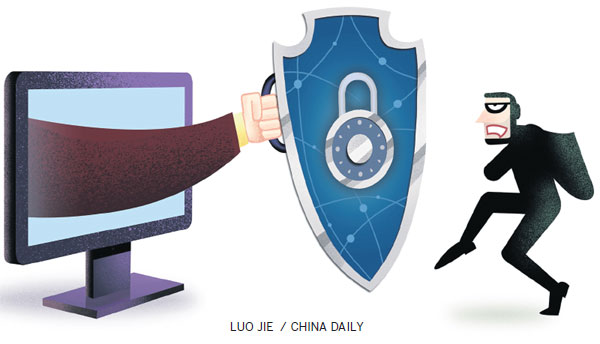Judges Call for Stronger Personal Data Protection

Judges and legal professionals from 25 countries and regions called on Thursday for stronger efforts to protect personal data and prevent the abuse of such information.
The calls were made in a declaration adopted at the World Forum on Rule of Law in Internet, organized by the Supreme People's Court and held in Wuzhen, Zhejiang province.
Zhou Qiang, the top court's president, said China has been paying high attention to cybersecurity and would like to share its judicial experience in promoting cyberspace governance through the rule of law with the international community.
Kou Fang, president of Beijing High People's Court, called for more attention to be given to the fight against personal information infringements and crimes.
"In the era of the internet, we need to catch up with the fast pace of technologies amid new legal problems, and improve the legal protection of personal data," he said.
Chinese laws allow internet operators to use personal information if they inform users that their personal data are collected and receive users' permission. Kou highlighted the significance of this requirement, but said in actual practice, many enterprises collect users' information in an unregulated and excessive manner.
He said while great efforts have been made to curb the illegal use, collecting and purchasing of personal data in China in recent years, maintaining online evidence and preventing the falsification of digital data are still difficult.
Estela Perlas-Bernabe, a senior associate justice of Philippines' Supreme Court, said the world has seen many serious data breaches from enterprises, and intensified supervision of telecommunication and information companies is urgently needed to protect privacy.
She said the Philippines adopted two laws-one on data privacy and one on prevention of online crimes-in 2012 which could be viewed as a milestone in the protection of personal information.
Russia has also safeguarded private data in cyberspace by clarifying the disciplinary, civil, administrative and criminal liabilities of violators.
For example, if a website illegally posts personal information, the website will be put on record, said Igor Vladimirovich Krupnov, head of a panel of judges at the Judicial Chamber for Cases of the Military of the Russian Federation.
Lin Wei, vice-president of the University of the Chinese Academy of Social Sciences, said public awareness about personal data protection is important.
He said he was glad most Chinese realize its significance and have begun protecting themselves through the rule of law when their privacy is infringed upon.
"But public concerns still exist because of some irreversible data releases," he said.
"They urge us to improve protection with powerful legislation and strict law enforcement."
Lin said he supports the drafting of China's first law on personal data protection, which has been put on the top legislature's agenda, and suggested that some specifics-including what information should be identified as private and the liabilities of internet enterprises, users and government-need more study.







